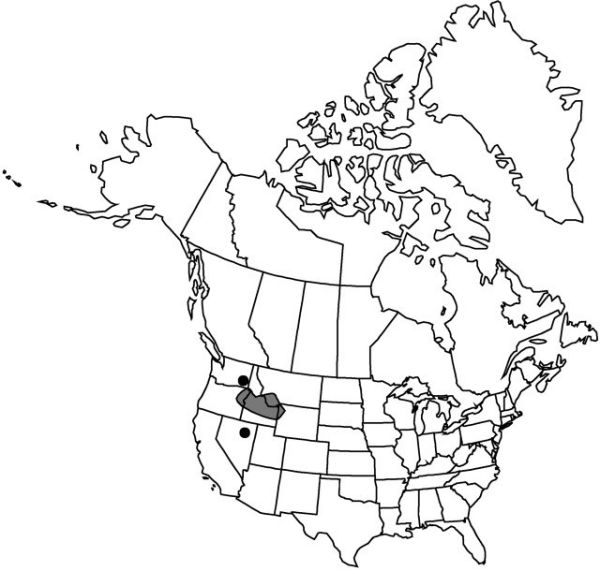Calochortus eurycarpus
Botany (Fortieth Parallel), 348. 1871.
Stems not branching, straight, 1–5 dm. Leaves: basal persistent, subtended by inflorescence, 1–3 dm × 5–25 mm; blade flat, tapering toward both ends, becoming involute. Inflorescences subumbellate, 1–5-flowered; bracts 2 or more, narrowly lanceolate to linear, long-attenuate, unequal, 1–5 cm. Flowers erect; perianth open, campanulate; sepals ovate to lanceolate, usually much shorter than petals, glabrous, apex acute to acuminate; petals creamy white to lavender, with conspicuous median red-purple adaxial blotch, obovate, invested near gland with few long, flexuous hairs, base cuneate, apex rounded or acute; glands triangular-lunate, slightly depressed, bordered proximally by comparatively narrow, deeply fringed membrane, distally often by narrower, crenate membranes, enclosed surface densely covered with long yellowish hairs, which, with membrane fringe, are often inconspicuously papillose; filaments slightly longer than anthers; anthers oblong, apex obtuse. Capsules erect, 3-winged, ellipsoid-oblong. Seeds light beige. 2n = 20.
Phenology: Flowering summer.
Habitat: Grasslands and open coniferous forests
Elevation: 700–2700 m
Distribution

Idaho, Mont., Nev., Oreg., Wash., Wyo.
Discussion
Selected References
None.